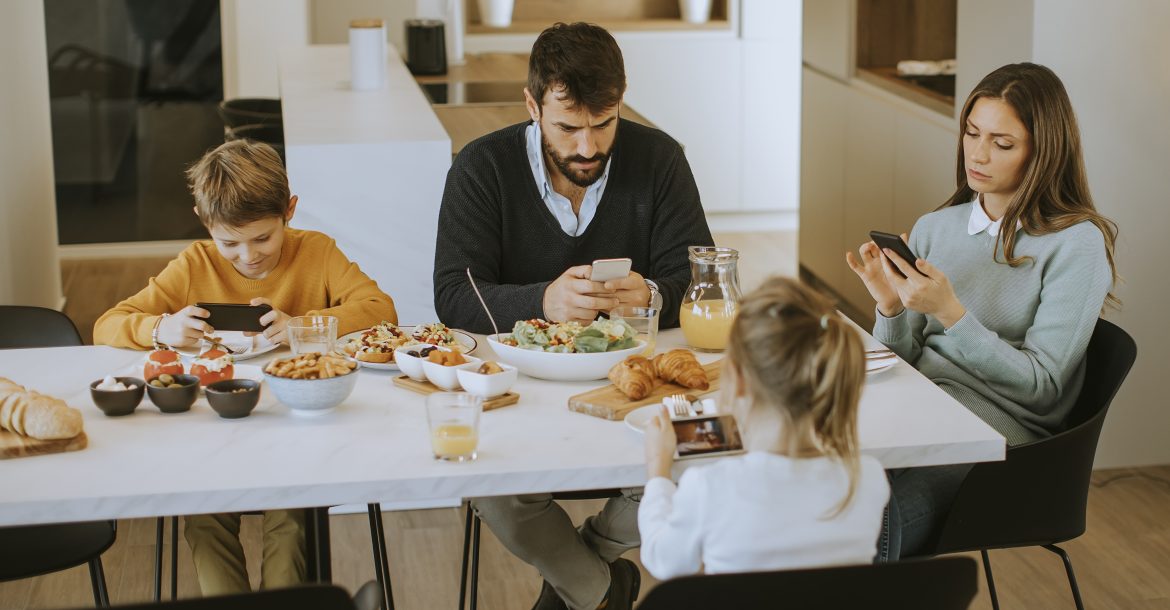The Paradox Called Social Media
Whether social media platforms can be upheld as channels to reinforce family connections or dismissed as platforms for unhealthy competitions/comparisons is a debatable topic. But in an age and time when ‘smart’ gadgets dictate everyday lives, the line between the two can, at times, merge.
It is easy to assess the importance of social media platforms in reinforcing family connections by bridging geographical gaps and fostering a sense of closeness among family members who are physically distant. The challenge, however, lies in understanding that social media can cultivate a pervasive culture of comparison, one that is fueled by carefully refined posts, leading to unrealistic expectations and tensions within families. Some experts have warned that constant exposure to seemingly perfect family lives on social media can contribute to feelings of inadequacy and discontent within households.
Read More
To comprehend this dilemma called social media and acknowledge it as a valuable source of information, education, and support for family members, The Arabian Stories Weekly spoke to Avni Ved, a Psychology Educator and behavioral counselor with a deep understanding of child development and pedagogy. She is also a neuro-linguistic programming practitioner and is qualified to provide counseling services to students of diverse backgrounds.
The following interview is structured to provide a guideline to balance the scale in favour of positive family dynamics in an era of social media.
What do you think are the overall effects of social media on family relationships?
The influence of social media on family relationships is complex. On the positive side, it provides an avenue for quick communication and helps families stay connected, especially when physically apart. However, there’s a concern that it may sometimes substitute meaningful face-to-face interactions, potentially impacting the depth and quality of relationships.
How has the prevalence of social media influenced communication patterns within families?
The prevalence of social media has significantly altered communication within families. It has become a tool for quick updates and sharing, making it easier for family members to stay informed about each other’s lives. However, it is crucial to recognize that while social media facilitates quick communication, traditional face-to-face talks remain vital for maintaining strong, meaningful connections.
Can you identify any positive impacts of social media on family life?
Certainly, social media plays a positive role in family life. It acts as a bridge for families separated by distance, allowing them to share moments and stay connected. Additionally, it serves as a valuable source of information, education, and support for family members.
How can social media be used to strengthen family bonds and connections?
Social media can serve as a tool to strengthen family bonds by providing a platform to share positive moments, achievements, and experiences. Creating a digital space that encourages open communication about technology usage and setting clear boundaries is essential for maintaining healthy connections.
What are the negative consequences of social media use on family dynamics?
Excessive social media use can have negative consequences on family dynamics. It may lead to reduced quality time spent together as a family and contribute to misunderstandings or conflicts arising from online interactions that lack the nuance of face-to-face communication.
Are there specific challenges or conflicts that commonly arise within families due to social media?
Indeed, challenges like privacy concerns and oversharing often lead to conflicts within families. Additionally, there might be generation gaps in understanding the implications of social media, creating a need for effective communication to bridge these differences.
What are the psychological effects of social media on teenagers within a family context?
Teenagers within families can experience psychological effects due to social media, such as social comparison affecting self-esteem and the potential risks of cyber-bullying or online pressure impacting their mental health. It’s essential for parents to be aware of these effects and provide support.
How can parents navigate the challenges of monitoring and guiding their teenagers’ social media use?
Navigating these challenges involves establishing open communication with teenagers. Building trust, educating them about responsible social media use, and addressing potential risks together can help parents guide their teenagers in using social media in a safe and mindful manner.
What advice do you have for families to mitigate the negative effects of social media on their dynamics?
Mitigating the negative effects involves setting reasonable limits on screen time, encouraging offline family activities, and fostering open communication about the impact of social media. Creating a supportive environment where family members can express their concerns helps in addressing challenges collectively.
How can parents create a healthy balance between technology use and family time?
Creating a healthy balance requires parents to establish tech-free zones or times within the household. Engaging in activities that promote face-to-face interactions, leading by example in terms of responsible technology use, and encouraging quality family time are essential steps in maintaining this balance.
It is important to note that the influence of social media on family relationships is a dynamic one; it requires families to adapt, communicate, and find equilibrium in the digital age.
Public opinion poll on use of social media platforms in Oman
According to a 2019 public opinion poll, conducted by the National Centre for Statistics and Information on the use of social media platforms by Omanis, 94 percent of locals have accounts on social media, and the average daily consumption rate is 6 hours.
‘WhatsApp’ was the most widely used application (93 percent), followed by ‘YouTube’ (71 percent) and ‘Instagram’ (50 percent).
The results also showed that the most common time for using social media was between 8pm to 12 am, and that 36 percent of Omanis trust social media as a source of news and information about important events, compared to 35 percent who do not trust it.
The survey also revealed that, on an average, Omanis have three accounts on various social networking platforms, primarily for communicating with family and friends, followed by acquainting with latest news.







